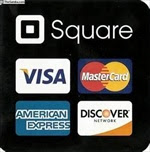 The coolest running shoes at the Nike store this year are the Nike Air Max+ 2013. They retail for $180, but when you break down the costs for the materials and the manufacturing and labor at the Chinese factory where the shoes are made, you’re looking at a product that costs less than $10 a pop. The remaining $170 covers marketing (to make you believe the shoes are worth the premium price) and a handsome profit for Nike. The company reports revenues of about $25 billion a year.
The coolest running shoes at the Nike store this year are the Nike Air Max+ 2013. They retail for $180, but when you break down the costs for the materials and the manufacturing and labor at the Chinese factory where the shoes are made, you’re looking at a product that costs less than $10 a pop. The remaining $170 covers marketing (to make you believe the shoes are worth the premium price) and a handsome profit for Nike. The company reports revenues of about $25 billion a year.It works the same way for many products in the tech world. As gadget enthusiasts, we accept the idea that products are worth what we’re willing to pay for them, and not what they cost in terms of product development, manufacturing, and materials. Nonetheless, it’s time to name names. Here are some of most egregiously high profit margins in the world of consumer tech.
Text Messages
Average cost: $0.20 per text
Average cost to provide: virtually nothing
The cost of text messages often gets a bad rap, and for good reason. Our tiny missives—160 bytes in size, at most—typically cost us 20 cents each to send and receive (assuming you don’t have a text messaging plan or haven’t gone over your limit). They cost essentially nothing to deliver, however, making the markup for an SMS message essentially infinite.
Here’s the deal: Wireless carriers must send packets of signaling data within the wireless network to set up calls and to signal the locations of devices in relation to cell towers. Back in the mid-1980s, a very clever engineer figured out that we could use the same signaling channel to send short messages during times when real signaling information wasn’t being sent. Thus text messaging was born. Because the carrier has to maintain the signaling channel anyway, the text messages cost the carrier essentially nothing to convey. So the money the carrier charges for them is pure profit. Ka-ching.
Nonetheless, the price the customer pays for each text message has been rising, from 10 cents in 2005 to the standard 20 cents today. And despite price-fixing allegations and lawsuits aplenty, there doesn’t seem to be any chance that prices will drop in the near future. (TechCrunch calculated the cost for the user of texting on a per-megabyte basis at a whopping $1310 per megabyte.) Alternatives, thankfully, are widely available through services like iMessage, WhatsApp, Facebook, and many other systems that use your data service, not the signaling packets, to send messages.
Asked to justify the cost of text messaging, the CTIA, the wireless carriers’ trade group, told TechHive, “Due to antitrust reasons, we cannot comment on prices. However, U.S. consumers have a variety of options to choose from, including unlimited text message plans.”
Computer and audio-video cables
Average cost: $45 (for a name-brand 8-foot HDMI cable)
Average cost to produce: about $3 (TechHive estimate based on market analysis and review of financial statements)
There’s no love lost between consumers and the cabling industry. Just look at Monster Cable, which has long been criticized for charging extreme prices—often over $100—for what amounts to some twisted wire with some rubber wrapped around it.
Monster Cable’s cables are preternaturally pricey.
Sure, generic cables from Monster’s competitors may not bear the THX logo, or boast “hyper speed” certification, or come with gold connectors crafted on the thighs of virgins, but it turns out that the vast majority of people won’t need all that stuff. Repeated studies and tests have found no differences between brand-name and generic digital cables. Other studies have found that the performance increase you get with high-end cables is hardly worth the extra cost.
In the digital realm, a cable either works or it doesn’t. There’s no faster or slower, and consumers have long been advised to buy the cheapest cable that works for their particular need. This means buying based on type (for example, HDMI version compatibility), connector size, and length, rather than brand name. It’s important to point out that there are different HDMI standards, and while cable “quality” may be a debatable point, not all HDMI cables work with every application.
As for the whipping boy Monster, its strategy seems to be having its share of difficulties: Consumers may have caught on to its more-than-50-percent gross profit margins on premium cables, and are buying fewer of them, according to the company’s financial statements. Those statements also show that the company spends almost as much on marketing and administration costs as it does on, you know, making cables.
Smartphones
Average cost: $549 (for a 16GB iPhone 5, unlocked)
Average cost to produce: $200
Deep carrier discounts often blind consumers to the true prices of smartphones. Really, what’s a couple hundred dollars for what amounts to a powerhouse computer that you keep in your pocket and use all the time? Subsidies that the carriers pay directly to all phone manufacturers muddy the picture, but you can get a clearer view of the real cost of a phone if you buy an unlocked model that isn’t tied to a contract.















